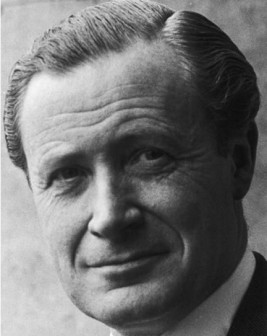The 1962 and 1963 Constitutional Conferences were the most controversial in the pre-Independence period. Guyana Review reprints this official account that was first published in the book “Report on British Guiana for the Year 1963.”
Constitutional Conference
A motion was passed by the Legislature of British Guiana in November 1961 requesting the Secretary of State for the Colonies to fix a date during 1962 for the independence of the territory. When in December of the same year the Secretary of State had not fixed a date for an Independence (Constitutional) Conference, the Premier, Dr the Hon’ble C B Jagan appealed.

Shortly afterwards, in January 1962, the Colonial Office announced that a Constitutional Conference would be held in May. However, early in May, the Governor informed the Premier that it was unlikely that the Constitutional Conference would be held in May as it was considered necessary to await the report of the Commonwealth Commission charged with the investigating the civil disturbances which had taken place in Georgetown in February. The talks were accordingly re-scheduled for 16th July. But, on the 30th June, the Secretary of State informed the Premier that the Commission’s Report would not be available until mid-August and that he therefore proposed to still further postpone the Constitutional Conference.
The Premier thereupon again requested United Nations assistance and the Committee of Seventeen on Colonialism invited the Premier to appear before it. The Committee later adopted a Resolution asking the Governments of the United Kingdom and of British Guiana “to resume negotiations immediately with a view to reaching agreement on the date of independence for British Guiana in accordance with the wishes of the people of British Guiana as expressed by their Parliament.”
The Constitutional Conference was eventually held in London in October 1962. It was attended by delegates of the three political parties represented in the Legislative Assembly. Eighteen sessions of the Conference were held. A number of constitutional points were settled. But it was found that no substantial progress could be made until decisions were reached on three major questions:
Should elections be fought on the basis of single-member constituencies as at present or on the basis of proportional representation?
Should the right to vote be accorded at the age of 21 as at present or at the age of 18?
Should fresh elections be held before independence?
The People’s Progressive Party advocated single-member constitutuencies, voting at 18, and no voting and no elections before independence. The People’s National Congress and the United Force asked for proportional representation, voting at 21 and fresh elections. These issues were exhaustively discussed, but no agreement could be reached.
The Secretary of State informed the Conference that he had considered putting forward compromise proposals with a view to breaking the deadlock. However, after exploratory talks with the three leaders, he had reluctantly come to the conclusion that there was no formula which appeared to offer any prospect of agreement. It was recognized that in the absence of agreement there were only two possible courses:
To leave the British Government to arbitrate on the questions at issue, or
To adjourn the Conference.
The leaders of all three delegations stated that they were un-willing to agree to arbitration by the British Government.
At the final session early in November, 1962, it was agreed that the Conference should be adjourned to allow for further discussions between the parties in British Guiana. The conference reconvened on 22nd October 1963.
In the meantime, serious civil disturbances had again erupted. A general strike had been called in April by the British Guiana Trades Union Council in protest against the introduction by the Government of the Labour Relations Bill, similar to the proposed 1953 Labour Bill that had then precipitated suspension of the constitution. The TUC were apprehensive that the Bill would give the Government broad powers over the determination in each industry of the union to be recognised as representing the mass of workers of that industry. Inter-racial violence became so acute that a state of emergency was declared in May and a regiment of British troops, in addition to the regiment resident in British Guiana, was flown in. The state of emergency ended and the workers returned to their jobs on 8th July after the Government agreed not to reintroduce the disputed Labour Bill. Ten people, including a British soldier, were killed during the strike.
The delegations of the three political parties and the Secretary of State for the Colonies reassembled in London three months later but the leaders of the three delegations were unable to report any progress in their search for agreement on the issues that still divided them. They asked the British Government to settle the outstanding constitutional issues and specifically undertook to abide by their decisions.
Mr [Duncan] Sandys announced these decisions on the final day of the conference. The development of party politics along racial lines, he said, was the root cause of the troubles in British Guiana. Therefore, he added, the British Government had decided to introduce the direct system of election by proportional representation in order to encourage the formation of inter-party coalitions and multi-racial groupings and to make it easier for new parties to form. In order to assist in the formation of any new parties there would not in the beginning be a qualifying minimum, percentage of the total national vote required by each party to obtain seats. Mr. Sandys announced that the voting age of 21 would not be lowered and that elections would be held as soon as practicable, after which a constitutional conference to settle any remaining issues and to fix the date for independence would be convened.
Other recommendations of the Colonial Secretary included constitutional safeguards to protect minorities, legal action against those promoting antagonism between the races, proper consultation between the Government and the Opposition, and the constitution by the Governor before independence of a local security force not drawn predominantly from any racial group.





